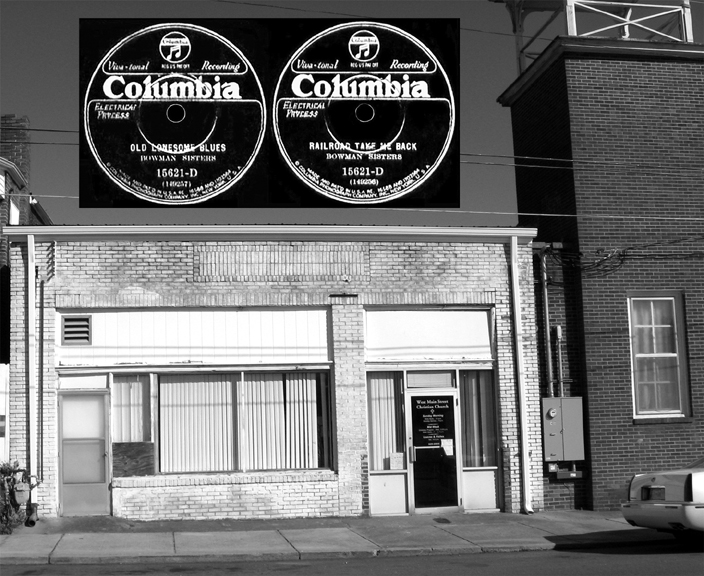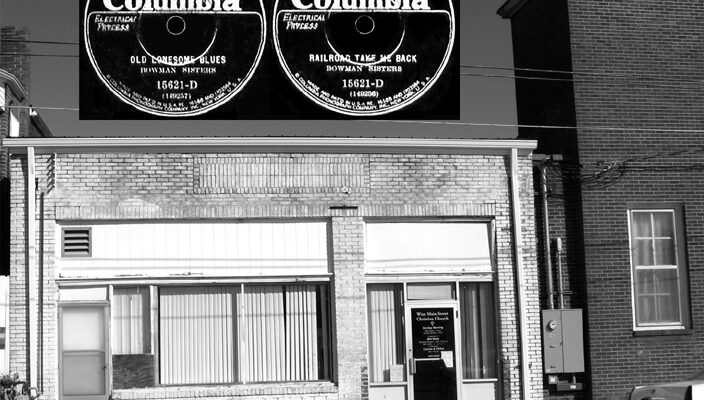The Johnson City Sessions' celebration has come and gone after much advanced publicity, four days of interviews, speeches and old-time music performances that included the rollout of the Bear Family Records box set. Several of my Bowman family members and I were privileged and honored to be among the participants.
Richard Weize, founder of Bear Family Records, captured and preserved the old-time music from the 1928 and 1929 Columbia Record sessions. This included the conversion of the original vintage 78-rpm records to digital format, documenting the musicians' personal stories and acquiring timeworn photographs of the performers. The compilation is a high quality set of four CDs (100 songs), accompanied by a corresponding book of old photos and informative text.
In today's column, I wish to single out some behind-the-scenes individuals, both living and deceased, whose contributions to the project were noteworthy.
When I learned that there were no recordings available for the box set for two of my family members, Pauline and Jennie, known professionally as the Bowman Sisters, I sent Richard a CD of their four songs from my heirloom record collection. To my dismay, Richard called me saying that my records were too scratchy for inclusion in the collection and it appeared that the box set would regrettably go forward without the Bowman Sisters' songs.
Fortunately, Mary Lou Weibel, Charlie Bowman's youngest daughter, came to the rescue. She possessed a set of relatively good quality discs that she acquired from eBay. Richard sent a recording engineer to her home in Atlanta to transcribe them. As a result and to our delight, the Bowman Sisters' music was included in the project.

One bit of data that was conspicuously missing was the location of the 1929 make-shift studio. A newspaper ad in the fall of 1928 confirmed the address of the first sessions to be 334 E. Main Street. Pauline once told me that the 1929 recordings were conducted in a building on the north side of W. Main Street, just east of and within walking distance of the intersection with W. Watauga Avenue.
Renowned country music historian, Charles Wolfe, learned from Jack Jackson, a participant at the 1929 sessions, that the site was a vacated store building that had been used for a cream separating station. He described it as a relatively small old red brick structure with a front section about 10 by 12 feet in front, then a wall and a small window that resembled a bank teller's window and an entry door into the building.
When I was in Johnson City last February, I contacted Bill Durham, a SHHS classmate of mine who grew up in the W. Main Street area, to see if he knew which of those buildings might be the one in question. We drove there early one morning and, in the sheer peacefulness of the town, took photos of every structure on that block.
Bill then called Eddie Baldwin, a friend of his who also grew up in that neighborhood. Bill gave him a verbal description of the building and asked if he had any thoughts about which facility might be the one for which we were seeking.
With little hesitation, Bill and Eddie mutually agreed that the studio was located at 248 W. Main Street, which at the time of the recording sessions would have been a relatively new building. The structure, which today is painted white, is the property of the West Main Street Christian Church that borders on Sidney Street.
Bill recalled going by the edifice many times in his youth when it was the Rowe Radiator Repair Co. A current photo of the building is included in the box set. Bill further recalled that the structure was a large open room with a partitioned restroom in one corner. A roll-up door was located on the east side for automobile entry.
My final contributor was Clarence Howard Greene, son of Clarence Horton Greene who recorded “Johnson City Blues.” I became acquainted with him through the efforts of Alan Bridwell. The younger Clarence walked in the same footsteps as his famous father, becoming a great musician of old-time music in his own right. He sent me a CD of his songs along with several old photos that I forwarded for use in the sessions project. Sadly, Clarence died a couple years ago.
Thank you Bear Family Records for the wonderful box set and your participation in the corresponding four-day city celebration.
